Sandra Beasley's Blog, page 14
October 3, 2012
"Bits" (Hat-tip to Eduardo C. Corral)
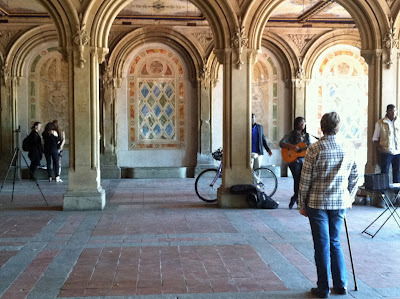
A week ago, I was in New York City doing the NYC thing--a reading at Le Poisson Rouge, a meeting with one of my editors, a stroll through Central Park that included a Bloody Mary at The Boathouse. It was lovely but it also lit a fire under me: I have got to get some things done now. (Before a trip to Mississippi that looms, in all its glory, on the October horizon.) I came home and wrote up a three-month plan, drafted two poems for a sequence in my manuscript, and...have been a ghost online. Price ya pay.
So let me use this time & space to simply note a few things that intrigue me:
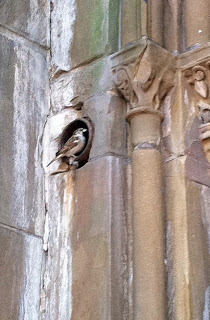
-Kyle McCord rocks. He has a killer poem up at Linebreak, one of my favorite online journals, that begins "When a man loves a woman, / he is asked: Soup or salad?" He is also the co-founder and content manager of LitBridge, which is burning up the internets with its advice articles (check out this one by Ash Bowen, "Confessions of a Dirty Careerist") and its smartly curated series of "Interviews with Graduate Programs."
-Thomas Sayers Ellis (not to be confused with the other TSE) has taken on the position of poetry editor for The Baffler . Seems like a good aesthetic match--the most recent TOC lists adventurist stylists such as Rae Armantrout, Joshua Clover, and Matthea Harvey. It's a handsome leftist magazine that has fought its way back to life; I love the idea of substantive poems integrated with smart essays and articles, a la The Believer, The Nation and (sometimes) The New Yorker. Let's see where that fierce mind wanders.
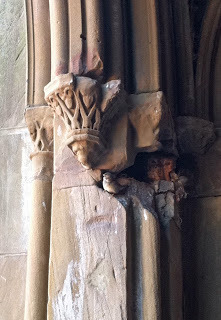 -Poets, once again time to ask yourself: what good things do you have to say about the human condition? I know we traffic in heartbreak, melancholia, scotch, and difficult mothers. But optimism and compassion are not the enemy. In other words: the October 20 deadline approaches for the Dorothy Sargent Rosenberg Poetry Prizes. (The "Sargent" in her pen name honors family member & famed painter John Singer Sargent. The family history is quite lovely--take the time to read it.)
-Poets, once again time to ask yourself: what good things do you have to say about the human condition? I know we traffic in heartbreak, melancholia, scotch, and difficult mothers. But optimism and compassion are not the enemy. In other words: the October 20 deadline approaches for the Dorothy Sargent Rosenberg Poetry Prizes. (The "Sargent" in her pen name honors family member & famed painter John Singer Sargent. The family history is quite lovely--take the time to read it.)-There are some fabulous events coming up at the Writer's Center, and I say that without any bias based on being a Board member. Specifically:
Saturday, October 6: "Nonfiction Storytelling in Science, Engineering and Policy--The Necessity of Narrative." Ignore the boring title. The line-up of guests is stellar, as is the brand of Lee Gutkind and Creative Nonfiction .
Saturday, October 13: "Make Lit Happen: Journeys Through the MFA and Beyond." A daylong program of panels that address the perpetual questions of whether you belong in an MFA program--and what to do after completing one. Featuring voices I trust such as Michael Collier, David Keplinger, and Eugenia Kim.
...And, my four-class Tuesday night workshop on "How It Works: Making Truth Claims in Your Poems." It begins on October 23 and will take place in Bethesda. We'll be working hard to write poems that not only make observations about everyday experience, but strive to articulate the way our world works. Each week will lead off with guided discussion of poets--such as Czeslaw Milosz or Jack Gilbert--who blend passion with philosophical resolve. (Okay, okay, this one I'm biased about.)
Published on October 03, 2012 14:21
September 21, 2012
Hidden DC
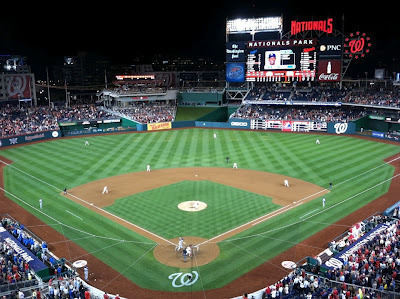
The other day I was talking to a blogger about The Blog as a hub or curatorial instinct: although there is a general focus on poetry, the only thing these posts all truly have in common is, well, me. It's the reason I don't accept guest posts. It's the justification for including some pretty random tangents, such as this one....
I am a DC girl, and in the last year or so I've realized I may be one forever. When I was a kid, I would come in to visit my dad's law offices that overlooked the C&O Canal in Georgetown, trying over and over to climb the unfinished brick walls. I rooted from the third deck as the Nats clinched a playoff spot last night; I take pride in our sushi chefs and beer selections; I watched the homecoming parade for Desert Storm veterans along Constitution Avenue, complete with yellow-ribbon fireworks; I defend our slightly staid fashion sense; I remember when Art-O-Matic was in that very strange decrepit EPA building space; I once crashed a kite into the side of the Washington Monument.
I am, in particular, very passionate about monuments and memorials (beyond flying kites into them). I probably get it from my dad; when not lawyer-ing he was Army-ing, and in fact he was one of those who broke ground at the Vietnam Veteran's Memorial. We still have the shovel. When my first conversation with the boyfriend made mention of the FDR Memorial--which he proceeded to have strong opinions about--I knew there was something there. I've written about the Jefferson Memorial for the Post Magazine.
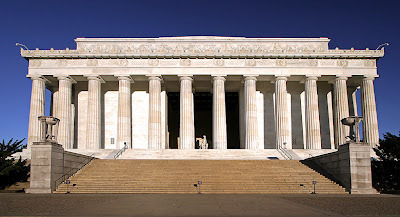
Oddly enough, the Lincoln Memorial is never one I've bonded with. Odd because it has an incredible role in our collective history; more than any other monument it doubles as a stage for the nation. But there is one aspect to it that fascinates me...
...the hidden face.
It's a story I first heard from a college boyfriend; then I overheard a tour guide--someone definitely not employed by the National Park Service--saying it to a busload of Japanese tourists; then I was reminded of it when I stumbled across this website. The principle is that if you stand in the right place, looking at the profile of Lincoln's statue, you can see a second face sculpted into the curves of hair on the back of his head. See it?

Now, apparently theories about as to who the face belongs to. Did Daniel Chester French, the sculptor, create a self portrait? That seems to me...kinda silly. A man who devotes his craft and his life to creating such legacies is probably not so petty & egotistical. Is it of Robert E. Lee? I doubt that version too, simply 1) French was a Yankee, and 2) because General Lee had a very distinguished visage that looks nothing like the one above:
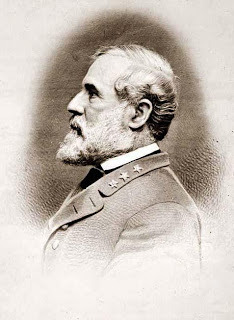
I mean, seriously. The Father of the Confederacy had one hell of a beard; any artist worth his salt would have honored that. Even if it meant giving Lincoln a mullet.
No, the theory I return to is the version I heard from a boyfriend I met through UVA's Jefferson Literary & Debating Society (which sponsored a stone in the Washington Monument, during its construction, that you can see marked with our name to this day) (yes I am a nerd). He said the face belonged to Ulysses S. Grant, famously temperamental and insecure soldier-cum-leader, who worried he would never be as revered as the martyr Abraham Lincoln. Grant directed French to work his profile into the statue so, by hook or by crook, he would always have his mark on the Mall. Check out the side by side (with Grant's profile flipped to emphasize the symmetry):

Awesome, right? Awesome. Of course, I am just perpetuating the myth; the bureaucracy that stands between conception and construction of a monument makes it highly unlikely that it was an act of intent rather than fate.
But I like the myth. I love DC. And that's your random tangent for the day.
Published on September 21, 2012 11:42
September 13, 2012
On Wedding Poems
 I am once again in a wedding party. But this time as a poet. Which means...(cue Jaws theme music)...I must either write or select a poem for the occasion. When my friend Dan Albergotti got married, he picked the perfect person for the job: his friend Natasha, a.k.a. Natasha Trethewey, a.k.a. the new Poet Laureate who is reading at the Library of Congress tonight. Smart man, that Dan. Sadly, my friend Dave has to settle for me. Dave is my oldest friend, in many ways my best friend, and I don't want to let him down.
I am once again in a wedding party. But this time as a poet. Which means...(cue Jaws theme music)...I must either write or select a poem for the occasion. When my friend Dan Albergotti got married, he picked the perfect person for the job: his friend Natasha, a.k.a. Natasha Trethewey, a.k.a. the new Poet Laureate who is reading at the Library of Congress tonight. Smart man, that Dan. Sadly, my friend Dave has to settle for me. Dave is my oldest friend, in many ways my best friend, and I don't want to let him down. When he asked me the title for the program, I told him to call my presentation "Epithalamium." A bit of a cheat, because "Epithalamium" is a catch-all word from the Greek that describes the form of poems or songs that celebrate a marriage and, more specifically, is usually addressed to the bride en route to her wedding chamber. (The same way "Aubade" describes a morning poem that records the parting of lovers.) In other words, whatever poem I read is an epithalamium. In other words: TBD. I don't want to retreat to the classic Shakespeare or Elizabeth Barrett Browning. My role here is to be a lighter, contemporary voice amidst the solemnity of vows. But I can't be too edgy--it's a poem for a church, meant to honor, not a toast with a glass of whiskey in hand meant to entertain. Can you tell I am overworrying? Did I mention he is my oldest, bestest friend?
There are a few favorites out there I could turn to, and I share them here for anyone who stumbles to this page looking for a wedding poem. One is Jeffrey McDaniel's "The Archipelago of Kisses," which the epigraph dedicates "for Sarah Koskoff and Todd Louiso." It appears in his great third collection, The Splinter Factory~
THE ARCHIPELAGO OF KISSES
We live in a modern society. Husbands and wives don't grow
on trees, like in the old days. So where
does one find love? When you're sixteen it's easy--like being
unleashed with a credit card
in a department store of kisses. There's the first kiss.
The sloppy kiss. The peck.
The sympathy kiss. The backseat smooch. The we shouldn't
be doing this kiss. The but your lips
taste so good kiss. The bury me in an avalanche of tingles kiss.
The I wish you'd quit smoking kiss.
The I accept your apology, but you make me really mad
sometimes kiss. The I know
your tongue like the back of my hand kiss. As you get older,
kisses become scarce. You'll be driving
home and see a damaged kiss on the side of the road,
with its purple thumb out. If you
were younger, you'd pull over, slide open the mouth's ruby door
just to see how it fits. Oh where
does one find love? If you rub two glances together, you get
a smile; rub two smiles, you get
a spark; rub two sparks together and you have a kiss. Now
what? Don't invite the kiss
to your house and answer the door in your underwear. It'll get
suspicious and stare at your toes.
Don't water the kiss with whiskey. It'll turn bright pink and explode
into a thousand luscious splinters,
but in the morning it'll be ashamed and sneak out of your body
without saying good-bye,
and you'll remember that kiss forever by all the little cuts it left
on the inside of your mouth. You must
nurture the kiss. Dim the lights, notice how it illuminates
the room. Clutch it to your chest,
wonder if the sand inside every hourglass comes from a special
beach. Place it on the tongue's pillow,
then look up the first recorded French kiss in history: beneath
a Babylonian olive tree in 1300 B.C.
But one kiss levitates above all the others. The intersection
of function and desire. The I do kiss.
The I'll love you through a brick wall kiss. Even when
I'm dead, I'll swim through the earth,
like a mermaid of the soil, just to be next to your bones.
~Jeffrey McDaniel
***Note that I hand-checked the above against the book; I've seen some other versions around the internet that get line breaks and even whole phrases wrong, argh.
There is also this fun(ny) one from Taylor Mali, "How Falling in Love is like Owning a Dog," though...best for couples with a clearly equal & happy power relationship.
HOW FALLING IN LOVE IS LIKE OWNING A DOG
First of all, it’s a big responsibility,
especially in a city like New York.
So think long and hard before deciding on love.
On the other hand, love gives you a sense of security:
when you’re walking down the street late at night
and you have a leash on love
ain’t no one going to mess with you.
Because crooks and muggers think love is unpredictable.
Who knows what love could do in its own defense?
On cold winter nights, love is warm.
It lies between you and lives and breathes
and makes funny noises.
Love wakes you up all hours of the night with its needs.
It needs to be fed so it will grow and stay healthy.
Love doesn’t like being left alone for long.
But come home and love is always happy to see you.
It may break a few things accidentally in its passion for life,
but you can never be mad at love for long.
Is love good all the time? No! No!
Love can be bad. Bad, love, bad! Very bad love.
Love makes messes.
Love leaves you little surprises here and there.
Love needs lots of cleaning up after.
Somethimes you just want to get love fixed.
Sometimes you want to roll up a piece of newspaper
and swat love on the nose,
not so much to cause pain,
just to let love know Don’t you ever do that again!
Sometimes love just wants to go out for a nice long walk.
Because love loves exercise. It will run you around the block
and leave you panting, breathless. Pull you in different directions
at once, or wind itself around and around you
until you’re all wound up and you cannot move.
But love makes you meet people wherever you go.
People who have nothing in common but love
stop and talk to each other on the street.
Throw things away and love will bring them back,
again, and again, and again.
But most of all, love needs love, lots of it.
And in return, love loves you and never stops.
~Taylor Mali
You can watch him deliver it here...
I wrote my first epithalamium a few years back: you can find "On the Occasion of Your Wedding" up on the Cerise Press website, but I'll share the text here too:
ON THE OCCASION OF YOUR WEDDING
People will tell you it is natural
to pair off. People say this despite
the Pope, in his backseat built for one.
People say this despite the cuttlefish,
with three hearts of his own and no room
for more. People say this despite
the majestic imbalance of bee hives;
despite the komodo dragon,
fertilizing each egg herself. People
are bluffing. There is nothing natural
about your pan caked in his grease,
or the way you tuck used Kleenex
in the crevice of his recliner. No one
ever lovingly stitched His or Hers
on a clog of drain hair. In the natural
world we each have our own cave,
a nice cave, tin cans strung between us,
a lake big enough for fishing, swimming,
the radial distance of being perfect and
perfectly alone. But here’s to saying
Screw it and I do. They make duct tape
for situations like this. They make
peanut butter. They make knowing
when to sing along to music you do
not like. They make knowing when to
leave the room. They make tiny,
superstrong magnets that will pin you
to a refrigerator door just long enough
for a kiss. I wish you all of these things,
these things you will need — and earlier,
as I tied the immaculate bow on what
I gave you instead, I thought You fools.
You lucky, lucky fools.
~Sandra Beasley
I'd like to think it's right for a wedding, but it's not right for this wedding. So I draft and fuss, fuss and draft. And I try to remember: the important thing is that two people I adore, the right people for each other, are joining hands and hearts before the eyes of God, family, and friends. I'm just a juggler people pass by on their way to the big tent.
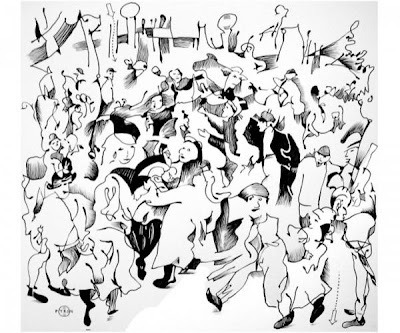
"Brueghel Wedding," a line drawing by Gary Peterson
Published on September 13, 2012 11:39
August 31, 2012
Lessons of Summer

Lordy, the weekend is upon us. The End of Summer. My balcony's planter-box--once a bright birthday gift from my sister, back in May--has now gone weedy and brown. I'm ready to make chicken chili and pumpkin soup. I'm ready to wear shawls again.
It's been a good season, driven by a promise that I would stay in and around DC and take care of myself. (The secret: allotting one hour of bad reality television if, and only if, it corresponds to one hour of working out.) I wish I had another two weeks. I have specific ideas for two essays I want to draft, and 4-6 poems. But still, I feel good rounding up the writing and editing I did get done, and a dozen lessons learned. Namely:
1) I need to have faith and be more patient with editors, especially in the case of building ongoing relationships. Twice this summer I turned in nonfiction, and when a week went by with no response I thought "Agh, it's horrible"--to the point of wanting to withdraw for a brute revision/rewrite. To pretend it never happened. Both times it turned out the editors liked what they saw, but it is just one of 1,000 things on their desks. You can burn bridges with insecurity; you gotta be careful.
2) Even after four years of amazing workshops at the University of Virginia, two years of amazing workshops at The American University, and the Jenny McKean Moore workshop at George Washington University post-MFA...I still benefit from having a writing group. There is something to having an outside set of eyes on your work, no matter how disciplined and discerning one may be. I am particularly grateful to have Kyle Dargan as a reader, more than a decade after we first met at UVA. He rocks.
3) I am not going to write reviews anymore. There are people who excel at the craft. I am not one of them or, if I am, I take no pleasure in it. It's also the lowest-paying rank of prose that I see out there in the freelance market right now. I'd rather use the work of contemporary poets to illustrate craft essays...and I suspect that'll actually keep their work alive more effectively, three years from now, than a review.
4) My Colorado uncle is right. Celery salt makes a Bloody Mary. It feels a little weird to season a glass, but that smokiness is all it takes (plus vodka, V8, a bit of Trader Joe's jalapeno sauce, maybe a celery stick garnish). I only ever use one little low-sodium can of V8 at a time, though, so don't worry: it's a mini-Mary. I'm not lushing it too much.
5) I get more done on days when not all my reading is off a computer screen. Recurring go-tos are New York (not just for that culture matrix--their cover stories are stellar), Rolling Stone, Poetry, and Real Simple. We'll see about The Oxford American.
6) If you're a creative type who I know to cheat on your significant other in real life, I give myself permission to never fully invest in your work. Life is too short.
7) I am not going to spend time on Op-Eds anymore. If they don't get taken on the first try, they start feeling stale too quickly. There is also a stridency there, a heightening of stance versus reason that is neither natural nor conversational; it reminds me of the email tomes I used to read & write for my college debating society's list-serv.
8) 5,000-8,000 steps is the perfect length walk for my neighborhood. Depending on level of ambition I can make it a post office run, or a tour of the National Zoo.
 9) Nationals Stadium has a superb array of beers available, but a pitiful shortage of great french fry purveyors ever since Five Guys left. Boardwalk Fries, you've been letting me down with your lukewarm, undersalted spuds. On the upside, a ketchup-detesting dad and a mustard-allergic daughter have discovered the perfect dip compromise: Cholula hot sauce.
9) Nationals Stadium has a superb array of beers available, but a pitiful shortage of great french fry purveyors ever since Five Guys left. Boardwalk Fries, you've been letting me down with your lukewarm, undersalted spuds. On the upside, a ketchup-detesting dad and a mustard-allergic daughter have discovered the perfect dip compromise: Cholula hot sauce. 10) Junot Diaz and I share a love, and that love is Encyclopedia Brown. The world is a strange and serendipitous place.
11) None of my poetry collections are going to resemble each other. While I hope to have a signature intensity of voice, maybe a specificity of phrasing, and probably always more sestinas than most poets, these books are going to jump all over the place in terms of mood, theme, and rhetorical focus. I'm a restless poet. This is both exciting and terrifying.
12) My love for the essay is beginning to rival my love for poetry. Given druthers, right now I might pick being a regular columnist over writing a second nonfiction book.
I think that's a PhD's worth of summer research, don't you?
***
Some links for those whiling away final hours before their holiday begins...
-For DC friends planning calendars: please come to the Arts Club of Washington on Tuesday, September 18, when I host a poetry reading by Meghan O'Rourke.
-For NYC friends planning calendars: join me at Le Poisson Rouge on Sunday, September 23, for a show with pianist Inna Faliks & baritone David Adam Moore.
-For friends adrift at what to do with a post-MFA fall, apply for fellowships and prizes using this invaluable list compiled by Erika Dreifus. (My goal: to head back to the Millay Colony next year. Their deadline for 2013 residency applications is October 1.)
-...And for friends returning to teaching, Matt Bell made me laugh with this McSweeney's Internet Tendency contribution: "MY GRADING SCALE FOR THE FALL SEMESTER, COMPOSED ENTIRELY OF SAMUEL BECKETT QUOTES."
Enjoy, and see you in September~
Published on August 31, 2012 10:31
August 25, 2012
The Last
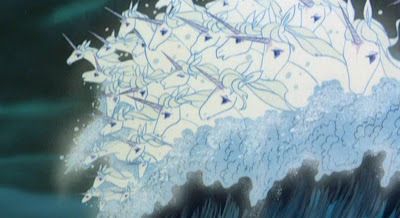
A whimsical posting of this photo on my Facebook account sparked a discussion of the 1982 animated movie, The Last Unicorn, which (along with Peter S. Beagle's wonderful book) made a serious impact on my young creative consciousness. So, resisting shame, here is my one of first published poems--which appeared in my 1998 undergraduate thesis at the University of Virginia and won a contest sponsored by Charlottesville's writing center and now-defunct literary magazine, Streetlight. I got to drive to Harrisonburg and record this winning poem, which was played on public radio for the subsequent month. They backed it with a Joni Mitchell song.
The Last
For Peter S. Beagle
Lloyd never calls them unicorns, no. They don’t grow those in Kentucky. Sure—four feet, one horn—but they bleat just like goats, they still bleed at the gums
when they get into the barb wire. Not like the horn is some shining gold either, sparkling with magic: just dim white bone, and an occasional crust of dung. Still,
one comes almost every spring to the Mathers’ farm: the veined head emerging from the womb of a perplexed mother, that single deformed horn
which makes Lloyd wipe his brow nervously with a loose blue rag, and take his whiskey break at one in the afternoon. All the other kids get names like
Billy, or Janey: but this one will be called Nuisance, or perhaps Dammit,and will crop the back pasture for a few lonely years. It just ain’t natural,
Lloyd complains to his wife. Nobody wants that one. Molly nods, promisingto mix a better feed grain this year, to add eggshells for calcium and clover
for luck. Yet in the evenings, after Lloyd has laid his overalls over the rocking chairand snores hard in the birch bed, she likes to sneak out in her white nightgown.
Stepping lightly in the tractored dirt, leaving no more than a single smudged toeprint,she eases open the barn door and goes to where those goats are, the strange ones
nobody wants. They come to her handfuls of alfalfa, gently butting and jousting each other, and she calls them by their real names: Amalthea, and Marek, Lir
looping his horn through the sash on her gown, pulling apart the loose bow; Fortuna, always wary of dragons as she chews a lace hem but skitters from touch.
If this were a fairy tale, and Molly a young maiden, she would braid a bridle of golden wheat and be gone by morning. But this is Kentucky. Molly will pick the last strands
of hay from her hair long before Lloyd wakes up; and the sun will rise a red bull, snorting at our need for real beyond real.
~Sandra Beasley (circa 1998)
Published on August 25, 2012 11:33
August 24, 2012
Surfacing
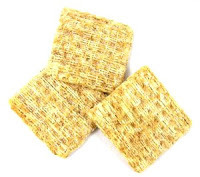 For most of the last two weeks I've been living in my robe, eating dinner after dinner of shucked mussels, spinach, quick-chopped Kumato tomatoes (this is what happens to "readymade rations" if you live near a Whole Foods), Triscuits, and the occasional icebox vodka. Off Facebook, off Twitter, off anything that could distract me from the profile of a musician that I've been working on.
For most of the last two weeks I've been living in my robe, eating dinner after dinner of shucked mussels, spinach, quick-chopped Kumato tomatoes (this is what happens to "readymade rations" if you live near a Whole Foods), Triscuits, and the occasional icebox vodka. Off Facebook, off Twitter, off anything that could distract me from the profile of a musician that I've been working on. Well, okay, I took a break for a trio of baseball games. This has been a revelatory season, and it's fun to be part of it. I have many memories of trekking up to Baltimore to watch the O's, and when the Nats first came to DC I accompanied my dad on some obligatory outings. But this year I've gotten to follow closely enough to recognize the tics (and fill in the bios) of individual players; this year the visiting team's at-bats is not the time to chat, but the time to watch Strasburg work his magic. I've always loved the game in the abstract, but this year I get to love it in the day-to-day.
Back to the writing. I'd be specific, but until the assignment feels like a sure thing I don't want to jinx it. I could hear a smile in my editor's voice when I called yesterday and told him he had copy coming his way. "Your job is done for a bit," he said.
Nope. I wish hitting "Send" felt that way. Something I've noticed in journalism: there is no sigh of relief. Instead I am doubting last-minute cuts for length, concerned someone's feelings will be hurt if they are not mentioned, already thinking ahead to the first edit, aware I have to work up an annotated copy for the fact-checkers that requires re-tracing hours of tape. It is different when your source material is your life, or the imaginative well of poetry, or even the static object of a book being reviewed. With profiles or travel pieces, we capture people and places as a kind of permanent record. In spite of everyone's inherent quirks and myths, their inconsistencies, they trust us to dedicate reality faithfully to the page--and sometimes the more ambiguous the reality, the better the piece, which means we must both record and interpret. I take that responsibility seriously. I worry I'm not good enough. I lose sleep over it at night.
I'm not saying this to whine, just being honest. I have a feeling my friend Wright Thompson, who works for ESPN and wrote this amazing piece, would laugh at me. Loudly. This is part of the gig. But I'm an MFA baby--no one trains us for this.
There are some good posts going on around the blogosphere. I loved Leslie's anecdote about interviewing for The New Yorker. I felt a sharp pang of sympathy for Jeannine, whose press has announced closure. People talk about blogs as a dying form, yet neither one of these experiences would have been told right through Facebook or Twitter alone.
Published on August 24, 2012 12:04
August 9, 2012
On Visiting Colleges
 Since I don't have a new book out, I won't have the whirlwind travel over the coming school year. And that's fine by me. Just as this summer has been about my third poetry collection, the fall will be about planting seeds for the next nonfiction book. And in the spring of 2013 I'll be the Writer-in-Residence at Lenoir-Rhyne University in Hickory, North Carolina. It's a small town outside Asheville, but the program has a big reach--just check out their Visiting Writer Series line-up.
Since I don't have a new book out, I won't have the whirlwind travel over the coming school year. And that's fine by me. Just as this summer has been about my third poetry collection, the fall will be about planting seeds for the next nonfiction book. And in the spring of 2013 I'll be the Writer-in-Residence at Lenoir-Rhyne University in Hickory, North Carolina. It's a small town outside Asheville, but the program has a big reach--just check out their Visiting Writer Series line-up.That said, I've been booking things here and there, and I've finalized a trio of visits to colleges over a week in October: dropping in on a creative nonfiction workshop at Ole Miss, a reading and workshop at Belhaven University outside Jackson, and a craft talk and poetry reading at MSU in Starkville. I'm thrilled to return to Mississippi, but in particular I look forward to the variety of these events, and the students I'll meet.
These visits matter. I take them seriously. We talk about the benefits they have for the students--the advice about publishing, the chance to network--but the impression is significant for the author as well. I was just reading the Washington Post and I came across a book review by a woman whose name, to this day, makes me shudder. Why? Because she was a nightmare when she came to visit my MFA program. She critiqued the manuscript of a fiction student, which was identified as a chapter of a novel-in-progress, and in her opening salvo announced that she didn't find the protagonist likeable, thought the work setting was boring, and that the section (and by association the book) used the wrong choice of POV. This was a semester before theses were due.
There's nothing wrong with drastic suggestions, except subsequent remarks--which confused the names of characters and obscured plot points--made it clear that she hadn't read the manuscript that closely. The writer, a kind and thoughtful student who had based his character's job on months of research, left on the verge of tears. He'd come in so excited to be the one workshopped by the Very Important Writer. (We knew she was Very Important because The New Yorker had reviewed her book which, when I tried to read it after her visit, proved witty but emotionally arid.)
When you show up disinterested in student work other than as a chance to show off how smart you are or how merciless editors can be, they notice. When you check your watch, counting down the minutes until you're off duty, and you skip the round of beers back at the favorite grad student bar, they notice. When you're rude to a beloved program mentor because he or she has "settled" into the teaching life while you've gone on to publish another three books, they notice. And they have a right to notice! They've spent their money on your books, they've spent hours studying your craft, they got up at 6 AM to pick you up from the airport and ferry you back to campus.
So show up, damn it. I don't mean that you can't demand coffee as a premise to cogency, and I don't mean that you have to magically recall everyone's name when signing books. You can be human. But please, be present.
We had some wonderful visiting writers as well. One was, at the time, just a poet on tour to support his second collection--a philosophical, slightly difficult book with an indie publisher. Since then he has become a superstar; his life was made a movie. It would be easy to resent someone who has come so far, so fast, but I will always remember how attentive he was students in workshop, how engaged and kind at the reception afterwards. For years after he would say hello at AWP, remembering our meeting at American University even if he couldn't quite remember my name.
He showed up.
Published on August 09, 2012 08:27
August 1, 2012
We Need Another National(ish) Poetry Series
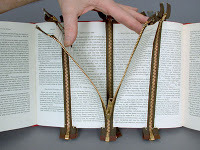 Art by Doug BeubeLast month I had the pleasure of attending a reading at the home of Reb Livingston, the editor of No Tell Books, which featured poet and editor Bruce Covey. As I chatted with Bruce about the upcoming slate of publication for Coconut Books, I asked:
Art by Doug BeubeLast month I had the pleasure of attending a reading at the home of Reb Livingston, the editor of No Tell Books, which featured poet and editor Bruce Covey. As I chatted with Bruce about the upcoming slate of publication for Coconut Books, I asked: Why doesn't a consortium of publishers start up another "national" poetry series for indie and/or experimental presses?
The principle is simple: poets pay a reading fee to have their books considered not by one press, but by five quality presses simultaneously. The existing National Poetry Series (which currently incorporates Coffee House Press, Fence Books, HarperCollins Publishers, Penguin Books, University of Georgia Press) has a great track record of selecting poets from a variety of aesthetics and matching them to appropriate houses. But they get a ton of incredible manuscripts, of which they can only publish a few.
There is room for another national poetry series, one that recognizes an annual cohort of exciting new voices. Coconut, Black Ocean Books, Octopus Books, Switchback Books: I am looking at you. Doesn't need to be the same publishers every year, though there should be a quality control mechanism for rotation in and out of presses (perhaps approval by an advisory board) that includes a pledge of minimum reasonable levels of support in terms of editorial infrastructure, design, number of copies printed, distribution, secondary award nominations, and publicity. The reading fees could fund an auxiliary force that works to market each year's winners, and by association the publishers. While I realize that there will always be variations in aesthetic--different opinions of what the "best" manuscripts are--that is why one employs multiple judges.
One thing the NPS does not do is create a network between each year's winners/judges, though the invaluable perks include name cache, an AWP reading, etc. But imagine if these indie presses went all in, and pooled their resources in terms of connections to opportunities with readings series and classroom visits around the country. Anyone who attends AWP offsite events recognizes that these likeminded affiliations already exist on an informal level. Imagine if this gave heft to freelancers trying to pitch small press books for review? Imagine if Small Press Distribution did an "Indie Poetry Series" summer special, a package rate for all five titles?
I'm not naive about the bureaucracy or ethical complications associated with contests, but I'd love to hear some discussion. Nothing great ever happens unless you start with the "imagine" phase.
Published on August 01, 2012 09:14
July 25, 2012
A Visit to Chestertown
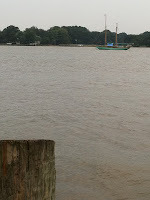 On Monday I trekked out past Annapolis to visit the Rose O'Neill Literary House at Washington College in Chestertown, Maryland. (Founded in 1706, it was the major port town until Baltimore came along. These days it is a little on the sleepy side. A local bakery was pointed out as the hotspot.) I was honored read with Kevin Vaughn, this summer's Cave Canem Fellow), visiting all the way from Paris. I was also thrilled to be home-hosted by Jehanne Dubrow--I finally got to meet her dog Argos!--a great poet, friend, and the House's newly appointed director.
On Monday I trekked out past Annapolis to visit the Rose O'Neill Literary House at Washington College in Chestertown, Maryland. (Founded in 1706, it was the major port town until Baltimore came along. These days it is a little on the sleepy side. A local bakery was pointed out as the hotspot.) I was honored read with Kevin Vaughn, this summer's Cave Canem Fellow), visiting all the way from Paris. I was also thrilled to be home-hosted by Jehanne Dubrow--I finally got to meet her dog Argos!--a great poet, friend, and the House's newly appointed director. Thought you might enjoy a quick glimpse of the Rose O'Neill digs, which features a fully-functioning letterpress studio...
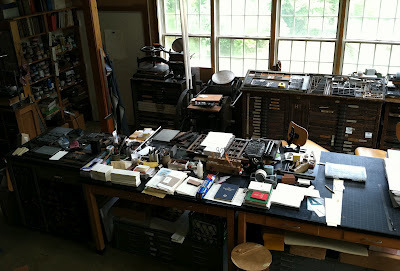
...where students and faculty work together to make a many broadsides, including this edition of Nick Flynn's poem "Bag of Mice"...
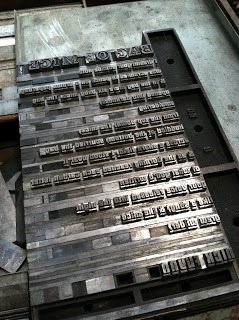
...and where local artists have donated their talent to spruce up the walls, including this playful mural that depicts Six Degrees of Bacon--both Kevin and Francis...
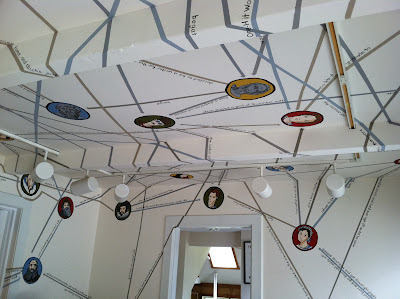
...and where students can access a spiffy kitchen for snacks and cooking, provided the recipes have a literary bent. (Madeleines a la Proust, anyone?)

Seriously, what a dream haven. So many books! So many places to sit, read, write!
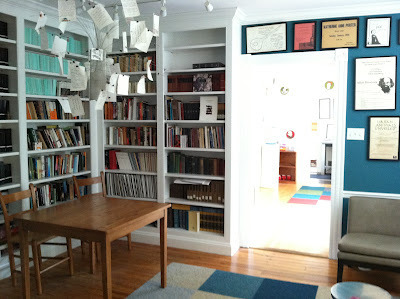
Our poetry salon was lovely--we began with music from the Pam Ortiz band, Kevin read from a long series-in-progress, and I shared a glimpse of the new manuscript. We had a big, friendly crowd. The editor of the Black Warrior Review was in the house, so I also read one of my sestinas, "The Platypus Speaks," which appeared in their journal.
Afterwards Kevin and I ducked out to the Hotel Imperial where he ordered us an ace concoction that substitutes Dewars' as the base for a Manhattan, sweetens with SoCo instead of vermouth, & garnishes with lemon and lime.
Now, off to the mountains for the Nightsun Writers Conference in Frostburg....
Published on July 25, 2012 12:00
July 20, 2012
Cleaving
v. cleft (klft) or cleaved or clove (klv), cleft or cleaved or clo·ven (klvn), cleav·ing, cleaves
v.tr.
To split with or as if with a sharp instrument.
v.intr.
To split or separate, especially along a natural line of division.
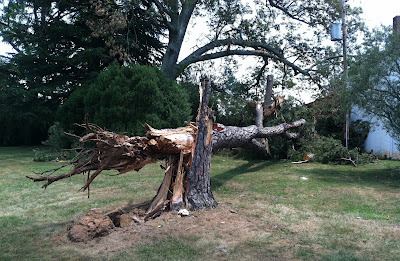
This past weekend I drove down to North Carolina, just south of Danville, for an important interview. On the way back I stopped off at my beloved Virginia Center for Creative Arts to take in the derecho damage, which they'd been reporting on over at the VCCA blog (including multiple days without power). The staff has been great, particularly Barbara Bernstein and David Garratt, who had to monitor the emergency generators for the kitchen--above and beyond the call of duty for artists in residence--and fellows rallied, trading in the usual serenity of the grounds for the bond of literally weathering the storm.
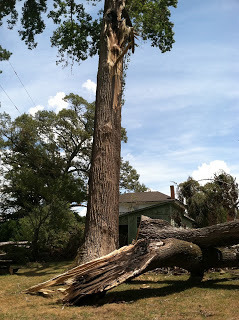 But there is no way around the devastating loss of trees. David took me around to the swimming pool, where derecho probably came roaring straight up from the hillside below. Mammoth poplars and ancient pines, wrecked. And these were not hollow trunks or deadfall waiting to happen--these were healthy trees in the prime of their multi-century lives. It was hard to see. In some cases the downed trees took others with them that otherwise would have survived the storm, the weight of one body breaking the other.
But there is no way around the devastating loss of trees. David took me around to the swimming pool, where derecho probably came roaring straight up from the hillside below. Mammoth poplars and ancient pines, wrecked. And these were not hollow trunks or deadfall waiting to happen--these were healthy trees in the prime of their multi-century lives. It was hard to see. In some cases the downed trees took others with them that otherwise would have survived the storm, the weight of one body breaking the other. As David said, you can't help but develop an attachment to these sentinels, seeing them day in and day out. Shape begets personality: the proud pine the, voluptuous poplar. The practical naturalist in me knows that storms have been devastating forests for eons. But humans see thing on the scale of our own lifespans, and so this feels like a death in the family. You think the shade is gone. You want to gather it all up in your arms and sit for a long minute.
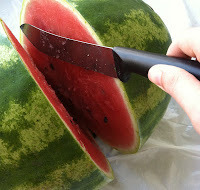 In Lynchburg, the closest major town to VCCA, I discovered a wonderful fresh farm market. I splurged on a big watermelon, tomatoes, bi-color corn, and a mix of heirloom beans. Hunkering down on the balcony to cut the watermelon, I missed Mississippi something fierce. I have fond memories of puttering around the Grisham House's mint-green kitchen, barefoot, listening to Sam Cooke or Valerie June, making do with hand-me-down knives and pots to fix a meal. Hacking hunks of watermelon off for Beth Ann Fennelly & Tom Franklin's kids while the grown-ups played bocce and sipped beer. Mixing beans and rice for the Hill Country Picnic. Roasting corn soaked in the husk (five for $1) to feed Ole Miss MFA students.
In Lynchburg, the closest major town to VCCA, I discovered a wonderful fresh farm market. I splurged on a big watermelon, tomatoes, bi-color corn, and a mix of heirloom beans. Hunkering down on the balcony to cut the watermelon, I missed Mississippi something fierce. I have fond memories of puttering around the Grisham House's mint-green kitchen, barefoot, listening to Sam Cooke or Valerie June, making do with hand-me-down knives and pots to fix a meal. Hacking hunks of watermelon off for Beth Ann Fennelly & Tom Franklin's kids while the grown-ups played bocce and sipped beer. Mixing beans and rice for the Hill Country Picnic. Roasting corn soaked in the husk (five for $1) to feed Ole Miss MFA students. 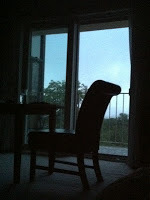 I fell asleep early last night, in the midst of a thunderstorm, and woke to 5 AM light. This was the view from my bed. I moved to this apartment in the midst of my own violent change, the cleaving of a life in two. Trusted sentinels were falling. I wasn't sure if I'd stay; I half expected to be in Mississippi by the end of the year. But, two years later, here I am, more in love with DC than ever. There is an alternate definition of cleave: "to cling or adhere," from the Old English cleofian and/or the Old High German klebēn, "to stick." When a hull splits sometimes it is a gesture of dying, and sometimes the revelation of something sweet inside, something to cling to. Either way, what is lost affirms what remains.
I fell asleep early last night, in the midst of a thunderstorm, and woke to 5 AM light. This was the view from my bed. I moved to this apartment in the midst of my own violent change, the cleaving of a life in two. Trusted sentinels were falling. I wasn't sure if I'd stay; I half expected to be in Mississippi by the end of the year. But, two years later, here I am, more in love with DC than ever. There is an alternate definition of cleave: "to cling or adhere," from the Old English cleofian and/or the Old High German klebēn, "to stick." When a hull splits sometimes it is a gesture of dying, and sometimes the revelation of something sweet inside, something to cling to. Either way, what is lost affirms what remains.
Published on July 20, 2012 10:46



